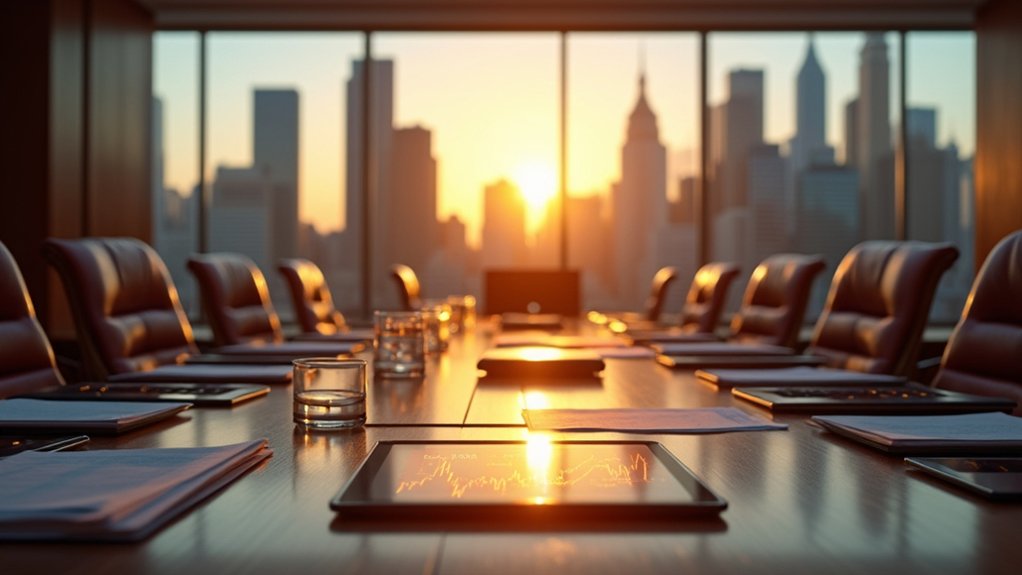While Bitcoin’s critics once dismissed it as a speculative bubble destined for irrelevance, corporate treasurers have apparently missed that memo entirely—public companies now hold over 725,000 BTC as of June 2025, a figure that would have seemed fantastical just a few years ago when CFOs treated cryptocurrency with the same enthusiasm typically reserved for root canal procedures.
The transformation has been nothing short of remarkable, with the number of public companies holding Bitcoin more than doubling from 64 in 2024 to 151 by mid-2025. Strategy (the artist formerly known as MicroStrategy) continues its Bitcoin maximalist performance art, accumulating over 553,555 BTC while adding 25,370 BTC in April alone—a monthly purchase that would make even the most aggressive hedge fund manager pause for breath.
Corporate America’s appetite has grown so voracious that companies collectively purchased nearly 100,000 BTC by April 2025, with fifteen new firms joining the treasury revolution in that month alone. When combined with private company holdings exceeding 300,000 BTC, total corporate reserves now surpass 1 million BTC—a threshold that transforms what was once fringe financial behavior into institutional orthodoxy. This unprecedented accumulation effectively absorbs six years of new Bitcoin supply, creating a supply shock that fundamentally alters market dynamics. Beyond traditional treasury allocation, corporations are increasingly utilizing blockchain-based smart contracts to automate and streamline their cryptocurrency management processes.
Corporate Bitcoin adoption has crossed the million-coin threshold, transforming fringe financial behavior into institutional orthodoxy.
The mathematics reveal a stunning reality: corporate demand now exceeds Bitcoin’s annual supply, creating a supply-demand dynamic that would impress even the most seasoned commodity traders. This isn’t merely speculative positioning but strategic hedging against inflation, fiat devaluation, and the broader macroeconomic uncertainty that keeps treasury managers awake at night.
Geographic expansion has accelerated beyond North American pioneers, with companies across Asia and the Middle East embracing Bitcoin treasury models. Regions experiencing economic instability demonstrate particular enthusiasm for this digital hedge, suggesting that corporate Bitcoin adoption correlates inversely with confidence in traditional monetary systems. The growth has been so dramatic that cryptocurrency payment adoption in the U.S. is projected to surge 82.1% over the next two years, driven by regulatory clarity and expanding payment infrastructure.
The regulatory environment has evolved from hostile skepticism to cautious accommodation, with U.S. policy support contributing greatly to this institutional embrace. As regulatory clarity improves, more corporations will likely view Bitcoin as a legitimate treasury asset rather than a regulatory minefield.
What emerges is a fundamental shift from speculative investment to strategic asset allocation, with Bitcoin’s fixed supply and growing liquidity making it increasingly attractive for corporate balance sheets seeking diversification and protection against monetary debasement.









